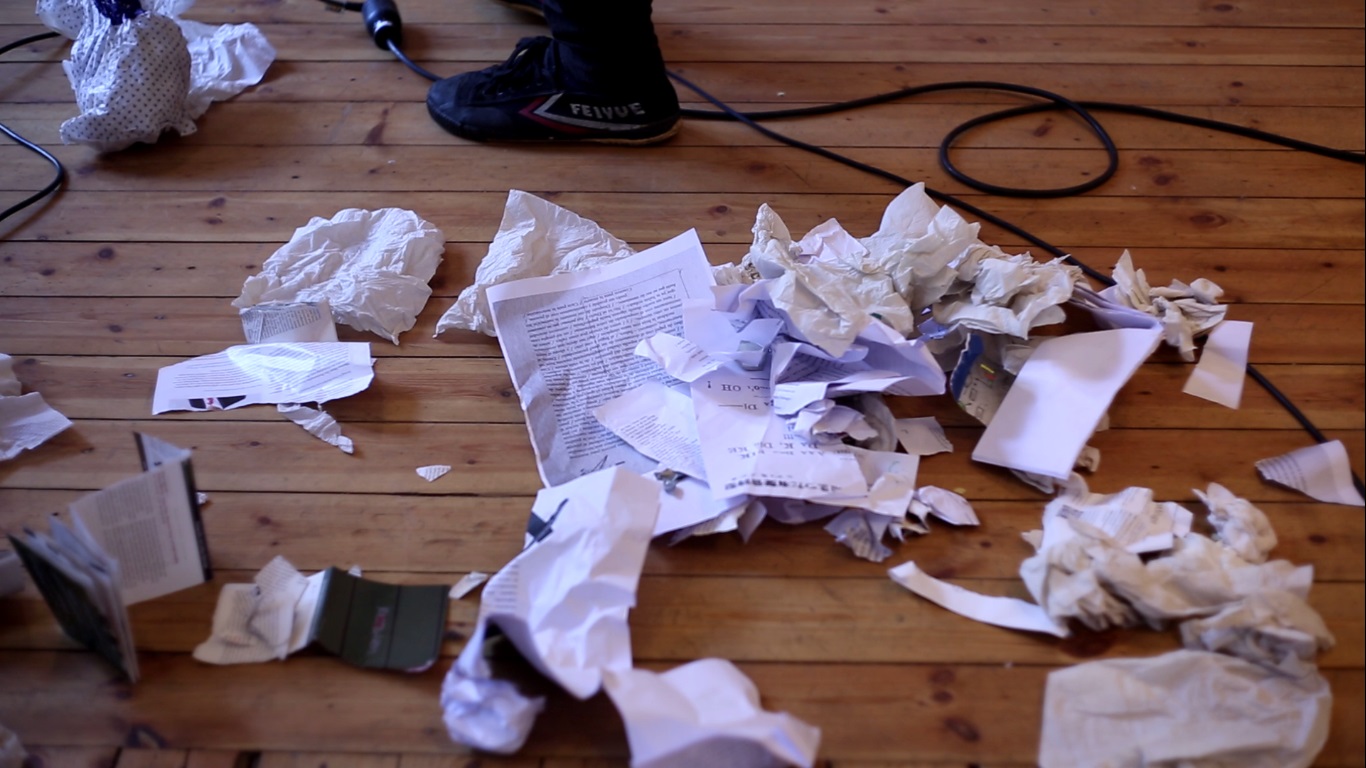Seit 2006 finden in der Lettrétage ca. 120 öffentliche Literaturveranstaltungen jährlich statt – Lesungen, Workshops, Diskussionsrunden, literarische Performances und Formate dazwischen. Bekannte und unbekannte Autor*innen und Künstler*innen verschiedener Sprachen und Nationalitäten sind hier schon aufgetreten.
Seit 2013 liegt der Programmfokus u.a. auf neuen Wegen der literarischen Präsentation und Live-Produktion: Dazu zählen u.a. die internationalen bzw. transnationalen Literaturfestivals „Soundout!“, „¿Comment!“, „Berlinisi“ und „Syn_Energy“, aber auch das viel beachtete Netzwerkprojekt „CROWD“ und multimediale Projekte wie die Reihe „CON_TEXT“ oder das „Poetry Audio Lab“. Eine vollständige Liste der Lettrétage-Projekte finden Sie hier.
Als Ankerinstitution für die freie Literaturszene Berlins stellt die Lettrétage außerdem ihre Räume für Literaturveranstaltungen aller Art zur Verfügung. Zahlreiche freie Veranstalter*innen nutzen unsere Infrastruktur regelmäßig – für Literatur-Workshops, Lesereihen in verschiedenen Sprachen und Buchpräsentationen. Mehr zu den Möglichkeiten der kostenlosen Raumnutzung erfahren Sie hier.
Auf dieser Seite präsentieren wir einen nicht vollständigen Einblick in unser vergangenes Programm.
Veranstaltungen
Termin Informationen:
-
Mi06Jun201820:00Eintritt 5/4 €
Voice Capture
Reading with Barrett Watten and Daniel Tiffany
Barrett Watten plans to read “Plan B”, a poem written in the aftermath of our national catastrophe, as a kind of “knowledge base” for the symbolic rubble of the election and the state of political crisis it produced. The keyword 'Gleichschaltung', drawn from the German experience in March 1933, is used as a call not to “normalize” the result of the election—an imperative that continues for many. Both terms appear at regular intervals through the poem. Also evoked is the wreck of the Edmund Fitzgerald—a 1975 maritime disaster on the Great Lakes (and ballad by Gordon Lightfoot) that is iconic for residents of Michigan, for whom it represents the destruction of the state as well as the wreck itself. The poem is translated into German by Munich performance poet Franziska Ruprecht, and will be presented in multi-media format, along with other works.
Daniel Tiffany will be reading from a book-length poem composed in syllabics and, more specifically, in a five-line stanza called the “cinquain," invented around the turn of the last century by the prosodist and poet, Adelaide Crapsey. The poem (just over 300 stanzas) writes through, very loosely, the framework of The Book of Margery Kempe—the earliest known prose autobiography in English—about an illiterate, fourteenth-century female mystic.

© Alan Bernheimer Barrett Watten is a language-centered poet and critic. His collection "Frame": 1971–1990 appeared from Sun & Moon in 1997; "Bad History", from Atelos in 1998; and "Progress/Under Erasure" from Green Integer in 2004. He edited "This", one of the central publications of Language writing, and co-edited "Poetics Journal" with Lyn Hejinian. He also collaborated on "Leningrad: American Writers in the Soviet Union" (1991) and "The Grand Piano: An Experiment in Collective Autobiography" (2006–10), and "Diasporic Avant-Gardes: Experimental Poetics and Cultural Displacement" (Palgrave, 2009); Wesleyan University Press published a combined print/digital "Guide to Poetics Journal" and "Poetics Journal Digital Archive" in 2013-15. His critical writing includes "The Constructivist Moment: From Material Text to Cultural Poetics" (2003; René Wellek Prize, 2004) and "Questions of Poetics: Language Writing and Consequences" (2016). He teaches at Wayne State University, Detroit, and posts at barrettwatten.net. 
© privat Daniel Tiffany's most recent poetry collection (with BLUNT RESEARCH GROUP), "The Work-Shy", appeared in the Wesleyan Poetry Series in 2016. Five previous collections were published by presses including Action Books, Parlor Press, Noemi, Tin Fish, and Omnidawn. His poems have been published in the "Paris Review", "Poetry", "Tin House", "Lana Turner", "Fence", "jubilat", and many other journals. He is also the author of five volumes of literary criticism (from Harvard, Chicago, California, and Johns Hopkins) and has published translations from French, Greek, and Italian. He is a recipient of the Chicago Review Poetry Prize and the Berlin Prize. He lives in Los Angeles.
Workshops & Infoabende
Termin Informationen:
-
Di06Okt202019:00Eintritt 3€
Lettering & Calligraphy
Meetup with Cyril Djemaoun and Anja Riese

Bitte machen Sie sich mit unseren Coronamaßnahmen vertraut.
"Lettering and Calligraphy" continues with another meetup in October. Participants are invited to work on their projects and share their thoughts and ideas. Everybody is welcome. Beginner and advanced. What to bring: words to design, pen & paper, sketchbook. There will be worksheets for alphabets for newbies or anyone who wants to practice an alphabet.
The number of participants is limited to 10 people max to ensure enough space for everyone and to stick to the hygiene and physical distance rules. Registration will be possible about two weeks before the workshop.
The meetup will take place at Methfesselstraße 23-25, 10965 Berlin.
Infos zu Workshops und Infoabenden in der Lettrétage:
Sämtliche Inhalte der Workshops und Infoabende werden von den Leiter*innen verantwortet. Die Teilnahmebeiträge gehen nicht an die Lettrétage, sondern sind direkt an den Veranstalter des Workshops zu zahlen.
Hinweis: Nach wie vor gelten besondere Maßnahmen für das Besuchen von Veranstaltungen. Bitte lesen Sie diese hier vorab nach. Wenn Sie eine Veranstaltung besuchen möchten, buchen sie Ihre Tickets bitte im Voraus über unser Online-Ticket Portal. Dies gilt ebenso für Veranstaltungen mit freiem Eintritt. Da die Veranstaltungen platzbeschränkt sind, bietet Ihnen ein Ticket die Sicherheit, auch einen Platz zu bekommen. Bitte buchen Sie nur ein Ticket, wenn Sie tatsächlich vorhaben, zu kommen. Wir danken Ihnen für Ihr Verständnis und freuen uns, unsere Türen wieder für Sie öffnen zu dürfen.
